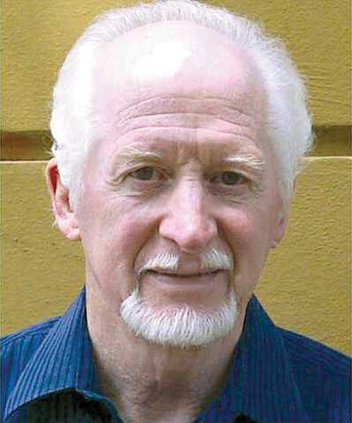In the wake of a nuclear deal between Iran and world powers, a Forsyth County man is leading a group of academics to the Islamic republic on a mission this week to help normalize relations between the U.S. and Iran.
“Lack of trust between the two sides has isolated Iran and prevented meaningful progress on a range of issues important for Middle Eastern and world peace,” said James Jennings in a news release.
“We aim to help begin the process of building bridges between U.S. and Iranian academics, as well as with Iranian officials as a way of restoring trust, which is basic to making agreements that stick.”
Jennings’ group, U.S. Academics for Peace, consisting of 10 professors, is sponsoring a conference in Tehran this week with Iran’s top foreign policy think tank.
The meeting is being held in the wake of the breakthrough Geneva meetings between Secretary of State John Kerry and Iranian Foreign Minister Javad Zarif.
U.S. Academics for Peace is independent of the U.S. government and pays its own way, according to the release.
Iran struck the deal in November with the so-called P5+1 countries — Britain, China, France, Germany, Russia and the U.S. Negotiators agreed to final terms of the deal Jan. 13.
Under the agreement, Iran will limit its uranium enrichment to 5 percent, the grade commonly used to power reactors. The deal also commits Iran to stop producing 20 percent enriched uranium — which is only a technical step away from weapons-grade material — and to neutralize its 20 percent stockpile over the next six months.
In exchange, economic sanctions Iran faces would be eased for six months.
Senior officials in the Obama administration have put the total relief figure close to $7 billion.
During the six months, negotiations between Iran and the world powers would continue in hopes of reaching a permanent deal.
The West fears Iran’s nuclear program could allow it to build an atomic weapon. Iran insists its nuclear program is for peaceful purposes, like power generation and medical research.
A team of international inspectors arrived in Tehran in preparation of beginning its inspections.
The conference involving Jennings’ group and the Institute for Political and International Studies in Tehran is set to end Thursday.
On Monday, the U.S. group met in Tehran with members of the think tank, including with the deputy foreign minister, as well as Iran’s longtime representative to the International Atomic Energy Agency, Jennings said by email.
“The meeting resulted in a frank exchange of views, revealing Iran’s willingness to go forward on detente with the U.S. in the nuclear area, and on much else as well if Congress will get on board,” he said.
“Several things have to happen for that to take place. Both sides have to end negative stereotyping of the other and deal with real people and events, rather than ugly, false images.”
Also, “for war to be avoided and peace to prevail there must be massive exposure to each others’ culture in ways that will bring about greater understanding,” Jennings said.
“We advocate a huge increase in higher education exchanges between professors, students and universities like the ones that used to exist between the U.S. and Iran.
“Finally, the U.S. needs to abandon the ‘shoot first and understand the culture later’ mentality, which some politicians have belatedly come to realize in regard to Iran and Afghanistan. Not every issue requires the militarization of politics. There is still a chance for a peaceful outcome with Iran, but the window of opportunity is a narrow one.”
While in Iran, the U.S. group will speak at several universities as the previous delegation did, including at Tehran University and [Iranian National] Shahid Beheshti University, according to the group’s news release. “Several members of the delegation are drawing on their previous experiences in Iran.”
U.S. Academics for Peace previously met senior Iranian leaders in Tehran, including the last two presidents, Muhammad Khatami and Mahmoud Ahmadinejad.
The team was invited to Iran by the Iranian Foreign Ministry through the Islamic Republic’s ambassador to the United Nations, Muhammad Khazaee.
Jennings, who organized U.S. Academics for Peace, also is founder of the humanitarian organization Conscience International, which has done work in Haiti, Pakistan and the Republic of Georgia.
The Associated Press contributed to this report.


